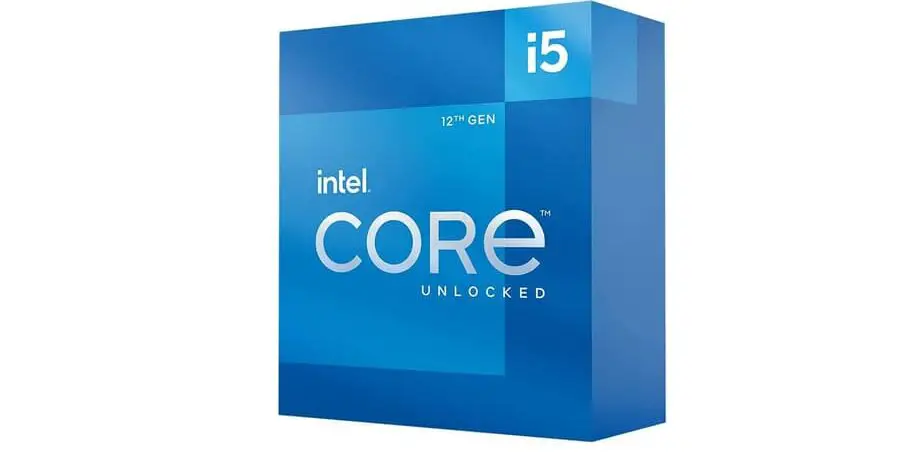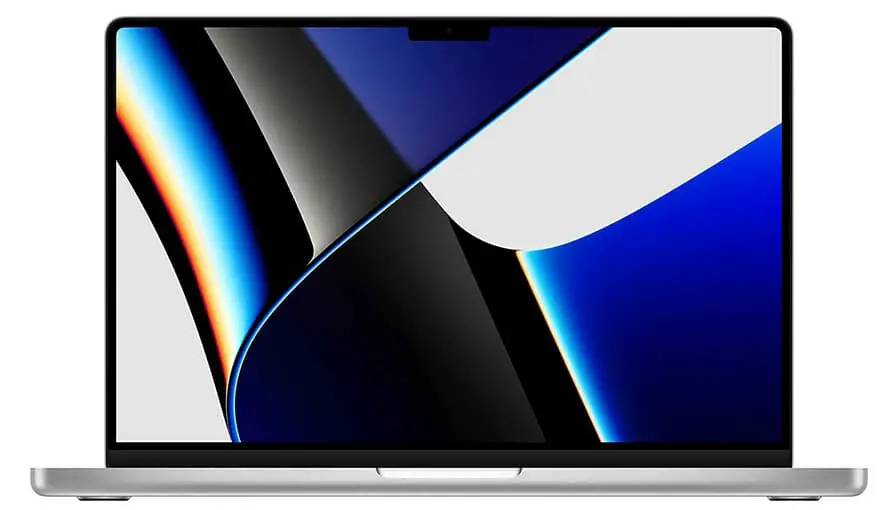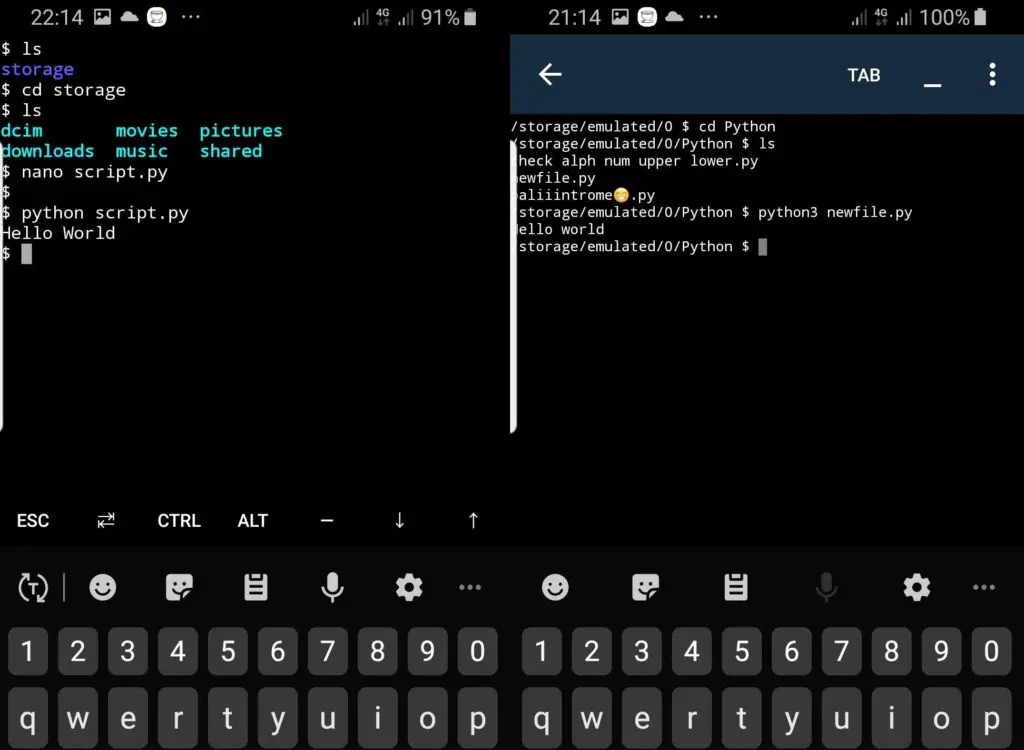Choosing the right RAM is crucial for optimal programming performance.
Just like with other variables in a laptop, such as the processor or storage capacity.
RAM plays a vital role in handling and storing data while running programs.
Insufficient RAM can lead to sluggish performance, frequent system freezes, and hinder your productivity as a programmer.
Therefore, it’s essential to carefully consider your RAM requirements when selecting a laptop for coding.
Let’s delve into the considerations when purchasing an 8GB or 16GB RAM laptop for coding and recommend the best choice.
For coding, a 16GB RAM laptop is recommended for seamless multitasking and handling resource-intensive tasks, ensuring smooth execution. While an 8GB RAM laptop can suffice for less-intensive and low-resource utilization programming, it may face limitations when working with larger datasets or demanding programs.
With that being said:
Is 8GB laptop RAM enough for coding?
In certain situations, an 8GB RAM laptop can be suitable. If you’re engaging in basic programming tasks, such as web development or scripting, an 8GB RAM laptop can handle them efficiently.
It provides adequate performance for simple projects and is often more cost-effective.
Advantages of choosing 8GB RAM laptops
- Cost-effectiveness: 8GB RAM laptops tend to be more budget-friendly, allowing you to allocate resources to other aspects of your programming setup.
- Adequate performance for entry-level programming: For beginners or those working on smaller projects, an 8GB RAM laptop can offer satisfactory performance without overwhelming specifications.
Limitations of 8GB RAM
- Constrained multitasking capabilities: Running multiple programs simultaneously or working with extensive codebases may strain an 8GB RAM laptop, leading to decreased efficiency.
- Resource-intensive programs and large datasets: Handling complex simulations, data analysis, or machine learning projects may be challenging due to memory limitations.
When you may need 16GB RAM laptop for programming
A 16GB RAM laptop becomes necessary in various scenarios.
For instance, if you’re working on advanced software development, running virtual machines, or utilizing memory-intensive tools like IDEs (Integrated Development Environments), the extra RAM capacity ensures smoother performance.
Advantages of choosing 16GB RAM laptops
- Enhanced performance and multitasking capabilities: A 16GB RAM laptop allows you to effortlessly switch between resource-intensive applications, reducing lag and increasing productivity.
- Smooth execution of demanding programming tasks: Complex algorithms, data processing, and running simulations become more manageable with the added RAM, promoting efficiency.
Possible limitations when using a 16GB RAM
Higher cost: 16GB RAM laptops generally come at a higher price point compared to their 8GB counterparts.
So,
Should you buy 8GB or 16GB RAM laptop for coding?
In general, a 16GB RAM laptop offers better multitasking and performance, accommodating resource-intensive tasks. However, if you have budget constraints or engage in simpler projects, an 8GB RAM laptop can suffice.
Make a choice based on your requirements, balancing cost and performance.
Assess the complexity and size of your projects, consider future scalability, and evaluate your budget.
To make an informed decision, consider the following factors:
Nature and scale of programming projects
Consider the complexity and size of your coding tasks to decide on the RAM you need.
For small projects like creating a personal website, an 8GB RAM laptop is sufficient.
However, for larger projects like developing a complex software application or working with big data, a 16GB RAM laptop ensures smooth performance.
Imagine you’re building a game with intricate graphics or analyzing massive datasets for machine learning algorithms.
In those cases, the additional RAM, especially 16GB RAM, becomes crucial for efficient processing and multitasking.
Long-term goals and scalability
When deciding between an 8GB or 16GB RAM laptop for coding, think about your long-term goals and how your programming needs might grow over time.
For example, if you plan to work on larger projects or use memory-intensive tools in the future, a 16GB RAM laptop would be more suitable.
It allows for better scalability and ensures your laptop can handle demanding tasks as you progress in your coding journey.
If your programming goals are modest, meaning you work on smaller projects or use less resource-intensive software, an 8GB RAM laptop will be sufficient.
For instance, if you mainly focus on web development using lightweight frameworks or scripting languages, an 8GB RAM laptop can handle these tasks effectively.
Similarly, if budget is a concern and you’re unable to invest in a higher RAM configuration, an 8GB laptop can still provide a smooth coding experience for less demanding projects.
It allows you to allocate your resources wisely without compromising on performance for your specific programming needs.
Consider your future aspirations and budget while making the decision.
Budget constraints and cost-benefit analysis
Lastly, it is crucial to evaluate your budget and strike a balance between cost and performance when deciding between an 8GB or 16GB RAM laptop for programming.
While a 16GB RAM laptop generally offers better multitasking capabilities and can handle resource-intensive tasks more effectively, it often comes with a higher price tag.
However, if you have budget limitations or primarily work on simpler projects, an 8GB RAM laptop can still be a suitable choice.
Consider the following scenarios to understand the budget-performance trade-off:
Example 1: John’s Budget Constraints
John is a student learning programming and has limited funds to invest in a laptop.
He primarily works on small coding projects and doesn’t require heavy multitasking or large dataset handling.
In this case, an 8GB RAM laptop aligns well with his budget and fulfills his current needs without breaking the bank.
Example: Sarah’s Long-term Goals
Sarah, a professional software developer, has ambitious long-term goals.
She anticipates working on complex software projects and running multiple applications simultaneously.
While her budget allows her to consider both options, she decides to invest in a 16GB RAM laptop to ensure smooth multitasking and accommodate future growth in her programming endeavors.
In both examples, the decision is based on individual circumstances and priorities.
It’s essential to assess your specific needs, current and future projects, and financial constraints.
Consider the potential benefits of investing in a 16GB RAM laptop for enhanced performance, but also weigh it against your budget limitations and the requirements of your programming projects.
Recommendation and the best choice
For most programmers, a 16GB RAM laptop offers the best overall experience, providing ample resources for multitasking and handling demanding tasks.
However, if you have budget limitations or engage in simpler programming tasks, an 8GB RAM laptop can be a viable option.
Ultimately, choose the RAM configuration that aligns with your specific needs and future aspirations in programming.
Another thing to consider when buying a RAM for your laptop, especially during a RAM upgrade is to choose the right and reliable brand.
When choosing a laptop for programming, it’s important to select the right RAM module that meets your needs.
Here are some recommended 8GB and 16GB RAM modules known for their performance and reliability, ensuring a smooth coding experience.
Recommended 8GB RAM Modules
- Crucial RAM 8GB DDR4 Laptop Memory: This module offers a good balance of price and performance. It provides sufficient memory for entry-level programming tasks and is compatible with a wide range of laptops.
- Corsair Vengeance LPX 8GB RAM: Known for its high-quality construction and reliability, this RAM module is suitable for both casual coding and light multitasking. It has excellent compatibility with various laptop configurations.
- Kingston HyperX Fury 8GB RAM: This module is known for its affordability and dependable performance. It provides ample memory for coding projects and is suitable for those on a tighter budget.
Recommended 16GB RAM Modules
- G.Skill Ripjaws V Series DDR4 16GB RAM: Designed for high-performance computing, this module offers excellent multitasking capabilities and fast data transfer rates. It is ideal for programmers working with demanding applications and large datasets.
- Patriot Viper Steel DDR4 16GB (1 x 16GB) 3200MHz Module: With its high-speed performance and reliable stability, this RAM module is popular among programmers who require extensive multitasking and memory-intensive tasks. It provides a seamless experience for complex coding projects.
- Corsair Vengeance LPX 16GB RAM: This module is known for its exceptional overclocking potential and low latency. It offers ample memory for running resource-intensive programming environments, virtual machines, or handling extensive data analysis.
Recommended 8GB RAM and 16GB RAM Laptops for Coding
To assist you in making an informed decision, let’s explore some recommended laptops with both 8GB and 16GB RAM configurations.
These options strike a balance between performance, reliability, and affordability, catering to the varying needs of programmers.
Recommended 8GB RAM Laptops
- Dell Inspiron 15 5000: This laptop offers a powerful performance with its Intel Core i5 processor and 8GB RAM. It is suitable for entry-level coding tasks and provides a budget-friendly option.
- Lenovo ThinkPad E14: With an AMD Ryzen 5 processor and 8GB RAM, the ThinkPad E14 ensures smooth multitasking and efficient coding. It also features a durable build and reliable performance.
- HP Pavilion 15: This laptop combines an Intel Core i7 processor with 8GB RAM, delivering excellent processing power for coding. It is known for its sleek design and affordability, making it a popular choice among programmers.
Recommended 16GB RAM Laptops
- Apple MacBook Pro 16: Ideal for macOS enthusiasts, this laptop boasts a powerful Intel Core i7 or i9 processor paired with 16GB RAM. It provides exceptional performance for coding, graphics-intensive tasks, and multitasking.
- ASUS ROG Zephyrus G14: This gaming laptop excels as a coding powerhouse. It features an AMD Ryzen 9 processor, 16GB RAM, and a dedicated NVIDIA graphics card, ensuring seamless multitasking and handling demanding programming tasks.
- Dell XPS 15: With an Intel Core i7 processor, 16GB RAM, and an impressive InfinityEdge display, the XPS 15 offers a high-performance coding experience. It is renowned for its sleek design, display quality, and reliability.







